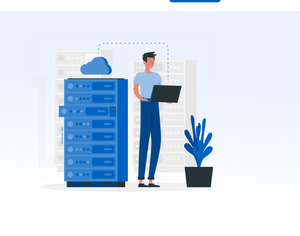Unleashing Your Potential as a MySQL Developer
Body
Introduction to MySQL Development
Embark on a journey into the realm of MySQL, a powerful relational database management system that fuels some of the most dynamic web applications worldwide. MySQL serves as the backbone of countless websites, powering everything from content management systems to e-commerce platforms. As a MySQL developer, mastering this technology opens doors to endless opportunities in the digital landscape.
Getting Started with MySQL Development
Setting Up MySQL Environment
Before diving into MySQL development, it's essential to set up your development environment. Install MySQL on your system, whether it's through a standalone installation or part of a web hosting package. Ensure compatibility with your operating system and configure the necessary settings to kickstart your development journey.
Basics of SQL for Developers
SQL (Structured Query Language) forms the foundation of MySQL development. Familiarize yourself with SQL syntax, including data manipulation, retrieval, and management commands. Understand concepts such as tables, rows, columns, and relationships to harness the full potential of MySQL in your projects.
Advanced MySQL Development Techniques
Stored Procedures and Functions
Elevate your MySQL development skills by delving into stored procedures and functions. These powerful constructs enable you to encapsulate complex logic within the database itself, enhancing performance and maintainability. Learn how to create, execute, and optimize stored procedures to streamline your development workflow.
Triggers and Events in MySQL
Take your MySQL applications to the next level with triggers and events. These mechanisms empower developers to automate tasks, enforce data integrity, and respond to database events in real-time. Explore the intricacies of trigger-based programming and event scheduling to unlock new possibilities in your projects.
Optimizing MySQL Performance
Indexing Strategies for Developers
Efficient indexing is the cornerstone of high-performance MySQL applications. Explore different indexing strategies, including single-column, multi-column, and composite indexes, to optimize query execution time and enhance overall system responsiveness.
Query Optimization Techniques
Master the art of query optimization to fine-tune the performance of your MySQL applications. Analyze query execution plans, identify bottlenecks, and leverage optimization techniques such as query caching, normalization, and denormalization to achieve lightning-fast response times.
Security Best Practices for MySQL Developers
Preventing SQL Injection Attacks
Security is paramount in MySQL development, especially in an era plagued by cyber threats. Implement robust defenses against SQL injection attacks by utilizing prepared statements, parameterized queries, and input validation techniques to safeguard your applications from malicious exploits.
User Privileges and Access Control in MySQL
Exercise granular control over user privileges and access rights to mitigate security risks in MySQL development. Implement the principle of least privilege, assigning permissions based on specific roles and responsibilities to minimize the potential impact of security breaches.
Collaborative Development with MySQL
Version Control and MySQL
Collaboration lies at the heart of successful MySQL development projects. Embrace version control systems such as Git to track changes, coordinate workflows, and facilitate seamless collaboration among team members. Leverage branching, merging, and pull request mechanisms to streamline the development lifecycle and ensure code integrity.
Best Practices for Team Collaboration
Foster a culture of collaboration and knowledge sharing within your MySQL development team. Encourage open communication, peer code reviews, and continuous learning initiatives to harness the collective expertise of your team members and drive innovation in your projects.
Troubleshooting Common Issues in MySQL Development
Debugging Techniques for MySQL Queries
Effective debugging is essential for resolving issues and optimizing performance in MySQL development. Equip yourself with debugging techniques such as logging, error handling, and query profiling to identify and rectify errors swiftly, ensuring the smooth operation of your MySQL applications.
Handling Errors and Exceptions Effectively
Errors and exceptions are inevitable in MySQL development, but how you handle them can make all the difference. Implement robust error handling mechanisms, including try-catch blocks and exception propagation, to gracefully handle errors, maintain application stability, and provide meaningful feedback to users.
Now that you've unlocked the secrets of MySQL development, embark on your journey with confidence, armed with the knowledge and expertise to tackle any challenge that comes your way. Whether you're building cutting-edge web applications, optimizing database performance, or fortifying security defenses, MySQL developers play a crucial role in shaping the digital landscape of tomorrow.
FAQs About MySQL Development
-
How can I become a proficient MySQL developer? To become proficient in MySQL development, start by mastering the fundamentals of SQL and database management. Practice regularly, work on real-world projects, and explore advanced concepts such as stored procedures, triggers, and optimization techniques.
-
What are some common pitfalls to avoid in MySQL development? Common pitfalls in MySQL development include inefficient query design, inadequate indexing, and lax security practices. Avoid these pitfalls by adhering to best practices, staying updated on industry trends, and continuously refining your skills.
-
How does MySQL compare to other database management systems? MySQL offers a balance of performance, scalability, and ease of use, making it a popular choice for web developers. Compared to other database systems like PostgreSQL and MongoDB, MySQL excels in areas such as speed, reliability, and community support.
-
What role does MySQL play in web development? MySQL serves as the backbone of dynamic web applications, powering essential functionalities such as user authentication, data storage, and content management. Its versatility and scalability make it an ideal choice for businesses of all sizes seeking to establish a robust online presence.










Comments